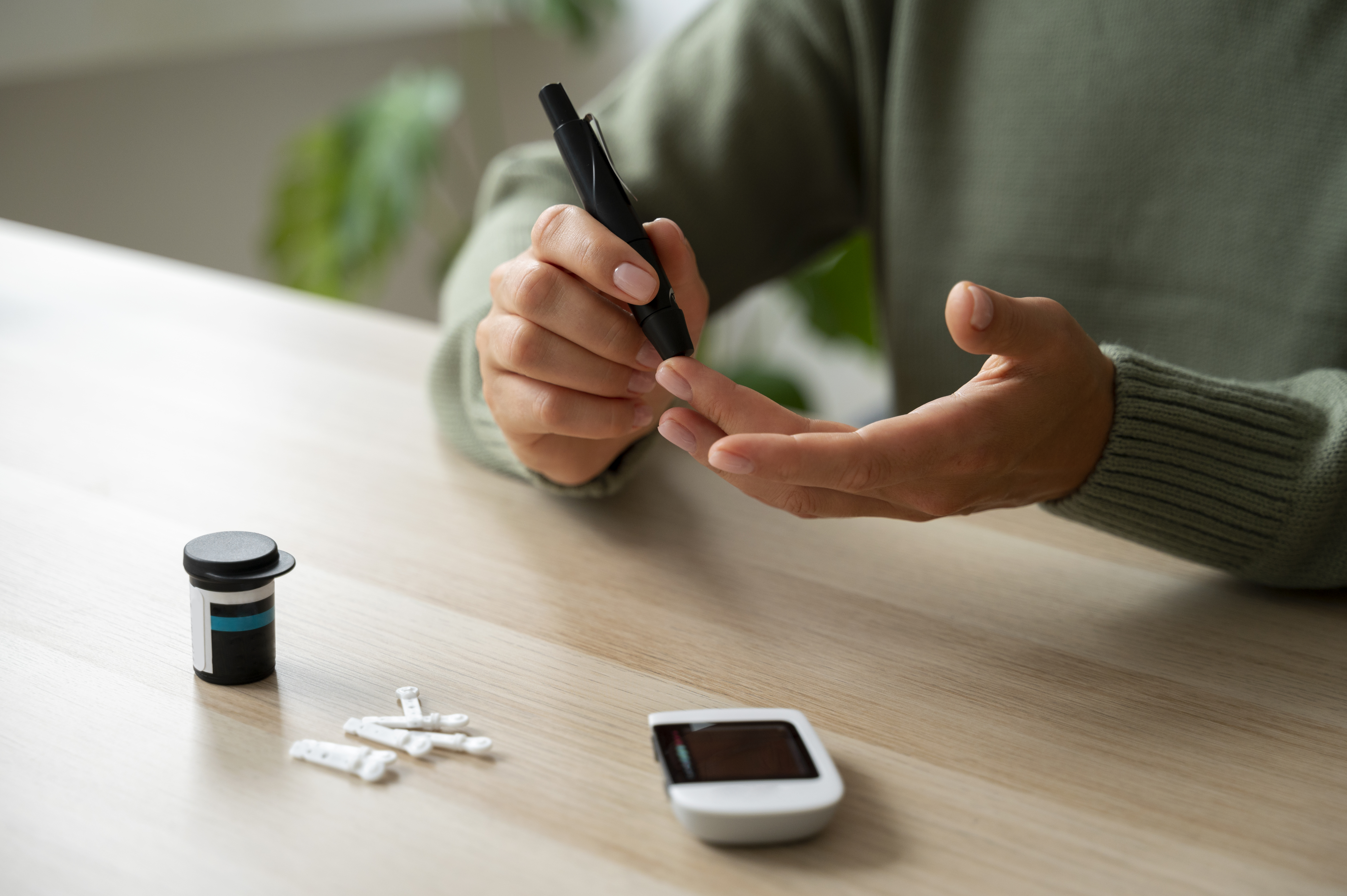How To Control Diabetes?
Effective Ways to Control Diabetes and Lead a Healthy Life
Diabetes is a chronic condition that affects blood sugar levels and can lead to serious health complications if left unmanaged. However, with the right lifestyle changes and medical care, diabetes can be effectively controlled. At Trinity Hospital, we provide expert guidance on managing diabetes for a healthier life.
1. Eat a Balanced, Diabetes-Friendly Diet
A healthy diet plays a key role in managing blood sugar levels. Follow these dietary tips:
- Choose Complex Carbohydrates – Opt for whole grains like brown rice, quinoa, and whole wheat instead of refined carbs.
- Increase Fiber Intake – Foods like vegetables, legumes, and nuts help slow sugar absorption.
- Eat Lean Proteins – Include fish, eggs, tofu, and chicken to keep blood sugar stable.
- Limit Sugary Foods – Avoid sweets, sodas, and processed foods that cause sugar spikes.
- Control Portion Sizes – Eating in moderation helps prevent sudden blood sugar increases.
2. Stay Physically Active
Regular exercise helps lower blood sugar and improves insulin sensitivity. Aim for:
- 30 minutes of moderate exercise (brisk walking, swimming, cycling) at least 5 times a week.
- Strength training to build muscle, which helps regulate glucose.
- Simple activities like taking the stairs instead of the elevator or walking after meals.
Consult your doctor before starting an exercise routine, especially if you have existing health conditions.
3. Monitor Blood Sugar Levels Regularly
Tracking your blood glucose levels helps you understand how your body responds to different foods and activities.
- Use a glucometer or a continuous glucose monitor (CGM) to check blood sugar levels as recommended.
- Maintain a diabetes journal to track patterns and adjust lifestyle accordingly.
4. Maintain a Healthy Weight
Excess weight, especially around the abdomen, can lead to insulin resistance.
- Losing 5-10% of body weight can significantly improve blood sugar control.
- Follow a calorie-conscious diet and an active lifestyle to achieve healthy weight goals.
5. Stay Hydrated
Drinking enough water helps regulate blood sugar levels and prevents dehydration. Aim for at least 8 glasses of water daily and avoid sugary beverages.
6. Get Enough Sleep
Poor sleep can increase insulin resistance and lead to higher blood sugar levels. Improve sleep by:
- Maintaining a consistent sleep schedule (7-9 hours per night).
- Avoiding caffeine and screens before bedtime.
- Creating a relaxing bedtime routine.
7. Manage Stress Levels
Chronic stress can lead to hormonal changes that raise blood sugar. Reduce stress through:
- Meditation and deep breathing exercises
- Yoga or gentle physical activity
- Engaging in hobbies and spending time with loved ones
8. Take Medications as Prescribed
If lifestyle changes are not enough, your doctor may prescribe medications or insulin therapy.
- Always follow your doctor’s instructions regarding medications.
- Never skip doses or alter your medication without consulting a healthcare professional.
9. Schedule Regular Checkups
Routine medical checkups help monitor diabetes and prevent complications such as heart disease, nerve damage, or kidney problems.
- Get HbA1c tests regularly to check long-term blood sugar control.
- Have annual eye and foot exams to detect early signs of diabetes-related complications.
10. Avoid Smoking and Limit Alcohol Consumption
- Smoking increases the risk of diabetes-related complications, including heart disease and poor circulation.
- Alcohol can cause blood sugar fluctuations, so consume in moderation and monitor levels if drinking.
Take Control of Your Diabetes Today!
Managing diabetes requires dedication, but small, consistent changes can make a big difference. At Trinity Hospital, our team of specialists provides personalized care to help you lead a healthier life.



